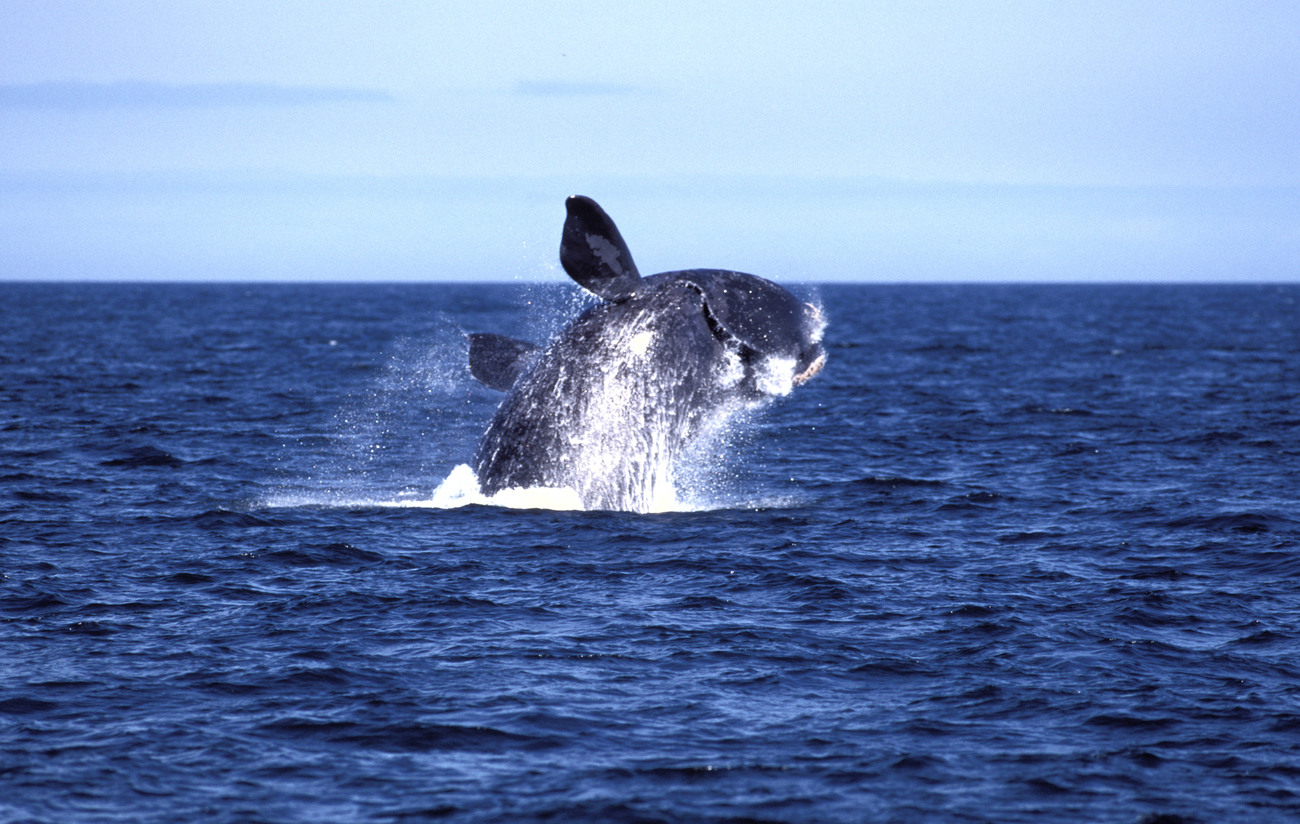Saving the North Atlantic right whale - North America
Don't fail our whalecritically endangered North Atlantic right whales show dramatic decline and are at risk of extinction
critically endangered North Atlantic right whales show dramatic decline and are at risk of extinction

Fewer than 366 North Atlantic right whales are now believed to exist worldwide, according to preliminary data released in a new official population estimate by the National Oceanic and Atmospheric Administration (NOAA). This number reflects the estimated size of the population as of January of 2019. NOAA also is revising its January 2018 population estimate from 412 down to 383. These new, and likely more accurate, estimates indicate that the species is declining more rapidly than previously believed.
“It is devastating to hear the revised population estimate of this already critically endangered species,” says CT Harry, Marine Campaigner at the International Fund for Animal Welfare (IFAW). “On top of this, we also know that since January 2019 at least 11 more animals have died and 4 new serious injury cases have been documented. These incredible animals are not dying from natural causes; they are being killed by vessel strikes and horrific injuries from entanglement in fishing lines.”
Population research has shown this species can only sustain losing 0.9 animals per year due to human impacts. Over the past five years, in documented deaths attributed to human activities alone, the species has lost 4.2 whales per year, exceeding the ‘allowed’ number of deaths by more than three whales per year. This does not include those documented carcasses with unknown causes of death, whales known to have serious injuries they are likely to die from, or undocumented dead whales, which means that the real number of lost right whales each year is likely significantly higher.
IFAW is taking a comprehensive approach to reduce threats to right whales and help the population recover. Since 2018, IFAW has championed ‘ropeless’ fishing gear technology in an effort to remove dangerous vertical buoy lines from the water column and drastically reduce entanglements. IFAW has expanded the functionality of Whale Alert, a situational awareness mobile app, to incorporate ocean glider acoustic data on whale presence allowing more mariners to see and avoid whales and decrease vessel strikes. In addition, IFAW’s Marine Mammal Research and Rescue team has expanded its medical intervention capability to administer at-sea treatments that will aid in whale disentanglement operations.
“With a population of approximately 360 animals and only 94 breeding females, what we know is that every individual North Atlantic right whale plays a critical role in the recovery of this species,” says IFAW veterinarian, Dr. Sarah Sharp. “The research is clear, if nothing changes, this species will go extinct in my lifetime.”
###
For more information or to arrange interviews please contact:
Benjamin Wiacek, at +32 492 17 15 81, bwiacek@ifaw.org
Melanie Mahoney at +1-508-744-2070 or press@ifaw.org.
About the International Fund for Animal Welfare (IFAW) – The International Fund for Animal Welfare is a global non-profit helping animals and people thrive together. We are experts and everyday people, working across seas, oceans and in more than 40 countries around the world. We rescue, rehabilitate and release animals, and we restore and protect their natural habitats. The problems we’re up against are urgent and complicated. To solve them, we match fresh thinking with bold action. We partner with local communities, governments, non-governmental organisations and businesses. Together, we pioneer new and innovative ways to help all species flourish. See how at ifaw.org.
Related content
Every problem has a solution, every solution needs support.
The problems we face are urgent, complicated, and resistant to change. Real solutions demand creativity, hard work, and involvement from people like you.